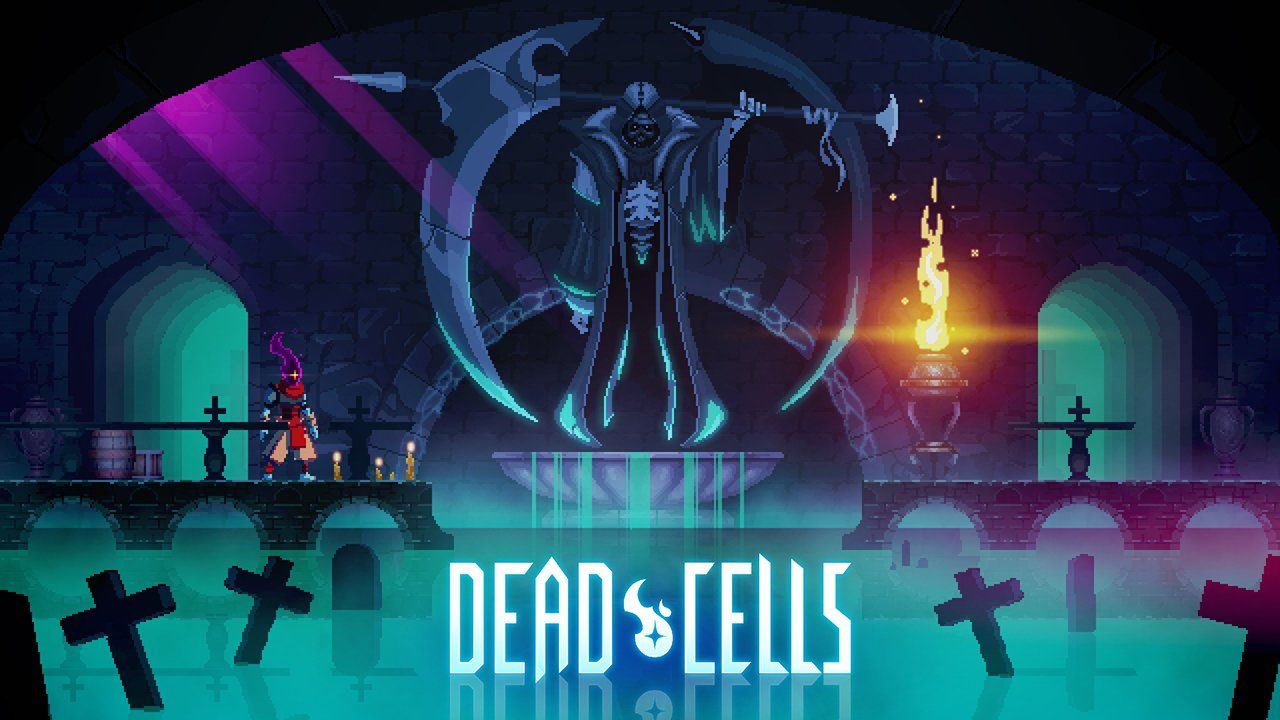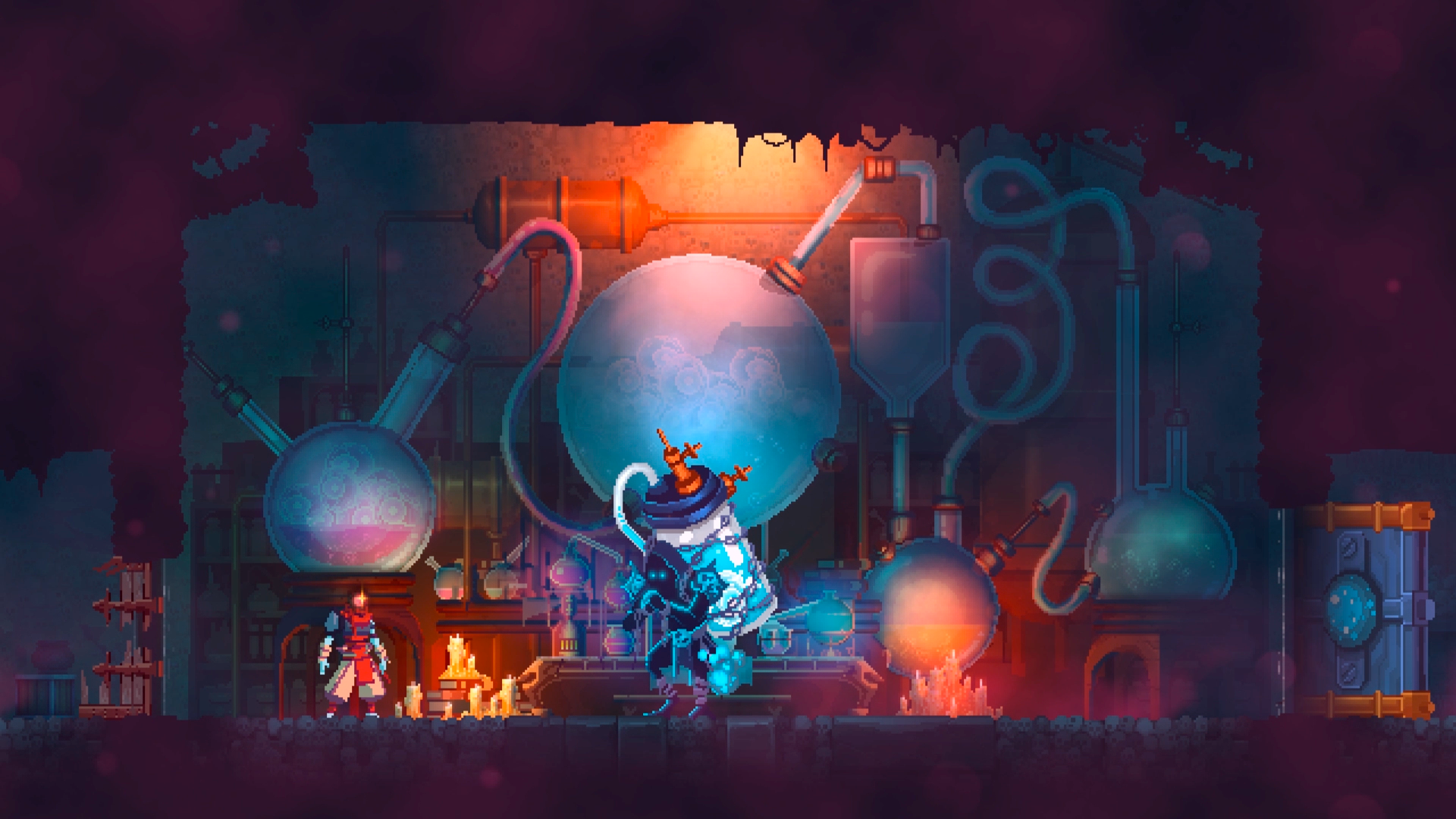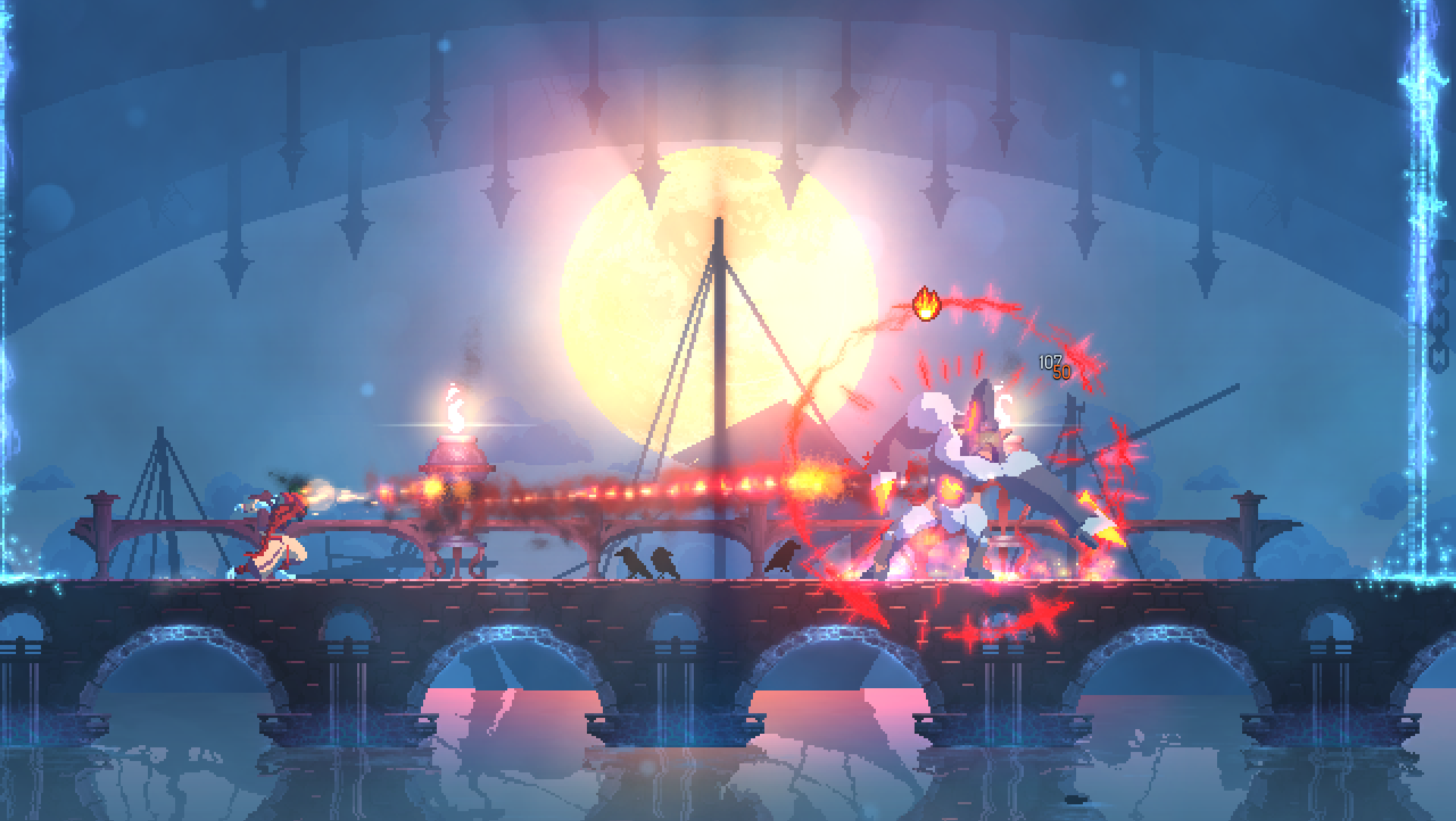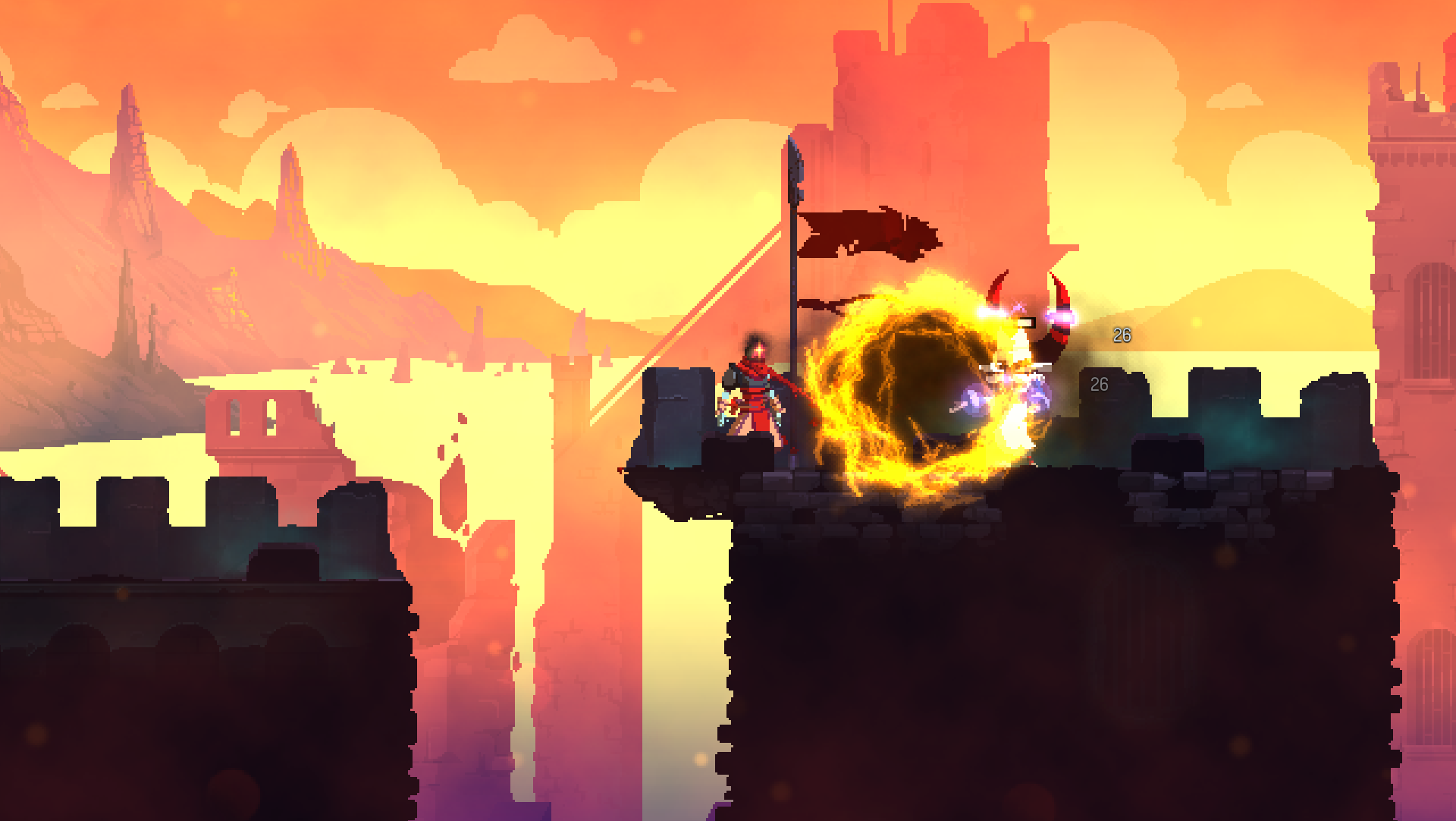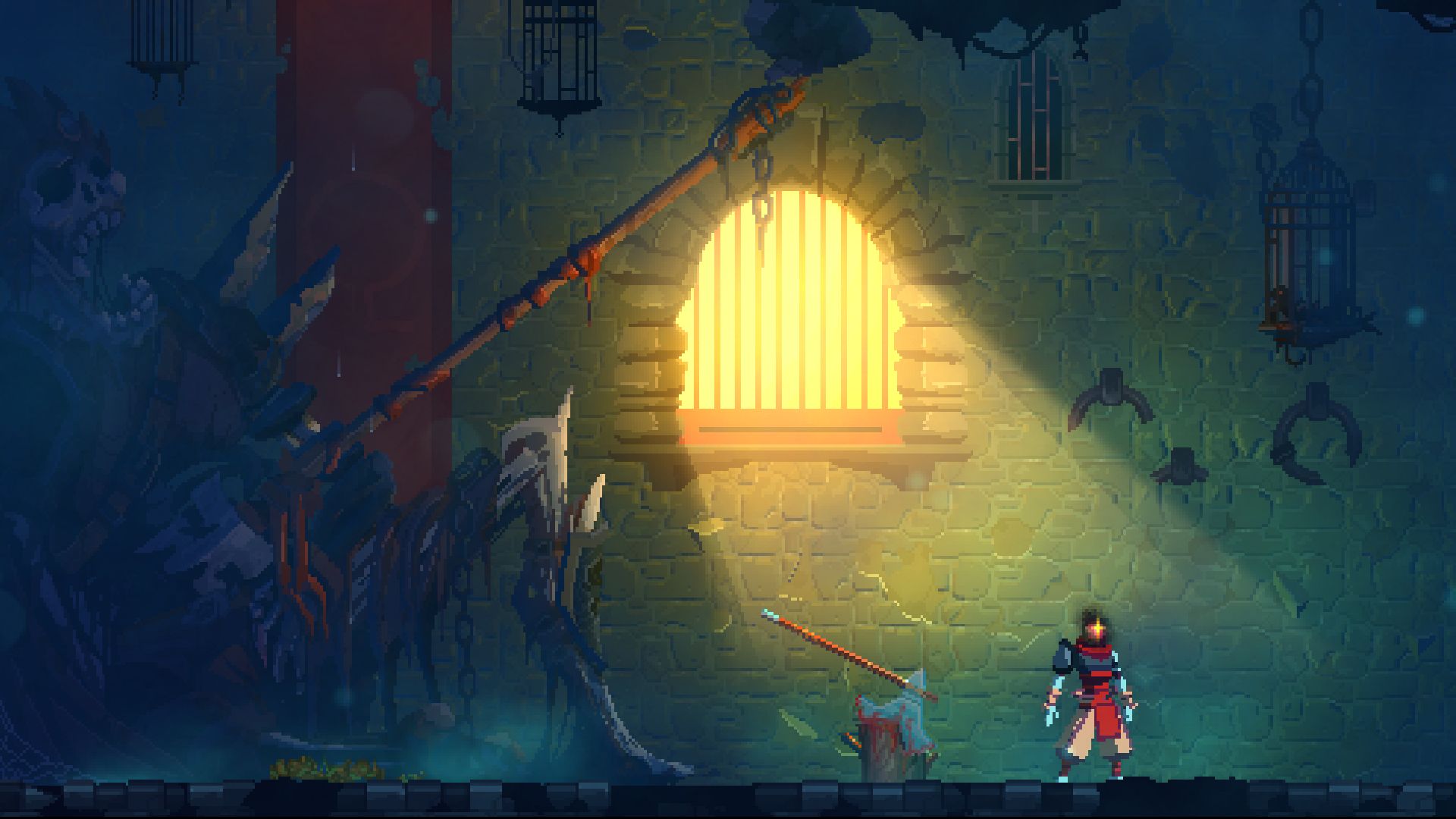Roguelikes have been an emerging and sustaining meta in the gaming development scene. While games like Rogue and Beneath Apple Manor started the trend before Pac-Man even existed, titles like Spelunky, The Binding of Isaac, and No Man's Sky have been testing the boundaries of where the gameplay device can expand into. Although other titles have tried merging procedural generation and the Metroidvania tropes, Dead Cells wraps up the package so effortlessly into an addictive, compelling mashup that can't be ignored.
Beginning as an Early Access title on Steam, Dead Cells has more or less become the poster child of PC indie games within the last few months. With near-constant updates and tweaks to keep seasoned players coming back, developer Motion Twin has been using the time to fine-tune the actual gameplay mechanics and UI since when the project first launched over a year ago. And now, 14 months later, the game is making its way out of Early Access and onto home consoles.
[pullquote]"Dead Cells wraps up the package so effortlessly into an addictive, compelling mashup that can't be ignored.'[/pullquote]
Right off the bat, there is barely anything to bemoan about Dead Cells' flawless execution. The game lives and dies by its nuanced and fast-paced combat system, which both requires a fair amount of patience on early runs while rewarding talent, speedrunning, and item synergy as you progress. Often playing like a fast-paced, 2D Bloodborne (or perhaps what Sekiro will be in the upcoming year), dodge rolling and learning enemy tactics is fundamental to any good playthrough. Rolling through enemy archers, throwing down a turret, handing those same enemies an ice grenade, and rolling away to safety never gets old, regardless of whether it is your first or fiftieth run.
Planting its feet firmly in the Roguelike genre, you are playing a mass of titular "dead cells" that can never seem to die. Each "death" brings you to the entry point of the game, planting you into a new body while also retconning the level design into something entirely new. That's not to say everything changes, given that the macro levels (as in, the overarching stages themselves) stay in the same order and the types of enemies habiting each environment doesn't change. However, because Dead Cells focuses so heavily on its fluid combat, the procedural generation always works in the game's favor.
Dead Cells does go outside the bounds of a traditional Roguelike game, mixing in Runes (items) that will not reset with each death. These runes will unlock portions of the map and stages that would otherwise be unreachable in your first few runs. While this is a fun take on the Roguelike formula, which likes resetting all progress previously made, it is also a fun wrinkle in the Metroidvania genre; "backtracking" is hardly backtracking when you are necessarily returning to those spots anyway.
Along with the Runes, the game's unnamed Prisoner protagonist will collect enemy cells that drop like a form of currency. Between each level you can turn in these cells for permanent upgrades -- collecting health flasks to heal mid-mission, upgrading your intro weapons, and assuring a gold-filled wallet all work to give an early-game advantage that pays off in each run. It also creates a compelling risk-reward system, where players will play cautiously towards the end of each leave to forgo losing every cell collected.
And while it may be less overstated than the procedural generation or the Metroid-like progression, each run is made special mainly due to a fantastic weapon system. Although the beginning of each run is going to start the same, Dead Cells throws in different weapons for each playthrough with varying stats. While one bow-and-arrow may shoot double shots with 150% damage that freezes enemies on impact, another one may make enemies explode into carnivorous worms that take down enemies and sniff out secrets on the map. Until your skill cap matches the game's challenging, finding a combination of weapons that works for you will likely be the most significant indication of how well a run will be.
For instance, I was never above dying in the first two areas -- even in later playthroughs. These could be quick 15 minutes runs, where using a broadsword because it is typically more powerful would hurt me down the line. On the other end, one of my favorite runs was where I was utilizing various freeze mechanics. I would lob ice grenades at enemies, freezing them and throwing down a turret that does 200% damage on frozen enemies. Even better? Deaths from that turret cause nearby enemies to freeze. It was a deadly chain reaction that the game opened up entirely accidentally, and disappeared into the RNG void as soon as it appeared (following a death three bosses in). Mixing and matching these skills to find what works best for you is going to be entertainment in its own right, drawing some classic Borderlands vibes.
Outside of the big line items I touched on above, there are other small intricacies that Motion Twin throws into the mix to keep each run of Dead Cells engaging. Secrets are hidden in each level, and optional challenges -- like opening a cursed chest -- are there to reward the daring. Timed gates that lock if you aren't speedrunning benefit those who want to avoid combing each stage for every single enemy adds gameplay diversity. So does daily challenge missions and mutations that will switch up your playstyle significantly.
The only real issue I've noticed is notable stability problems, at least on the Nintendo Switch version of the game. Sure, everything about the title makes it a rewarding handheld experience. However, as someone who doesn't consider himself a framerate savant, there are plenty of chugging sections Dead Cells, and entire frame-dropping isn't uncommon when things are getting hectic. They are problems that will likely be polished out with stability (and probably doesn't exist on more tech-proficient hardware), but it is a shame that the handheld version of Dead Cells is ever so slightly off the mark.
Dead Cells is likely the defining point of the Roguelike genre, thanks to refined combat and clever blending of genres. Whether you are looking for a quick pick-up game or are wanting to get lost in a multi-hour gameplay loop, very few games can master their own genre so well as Dead Cells manages to do. Fan of Roguelikes or not, this is a game that shouldn't pass you by in 2018.
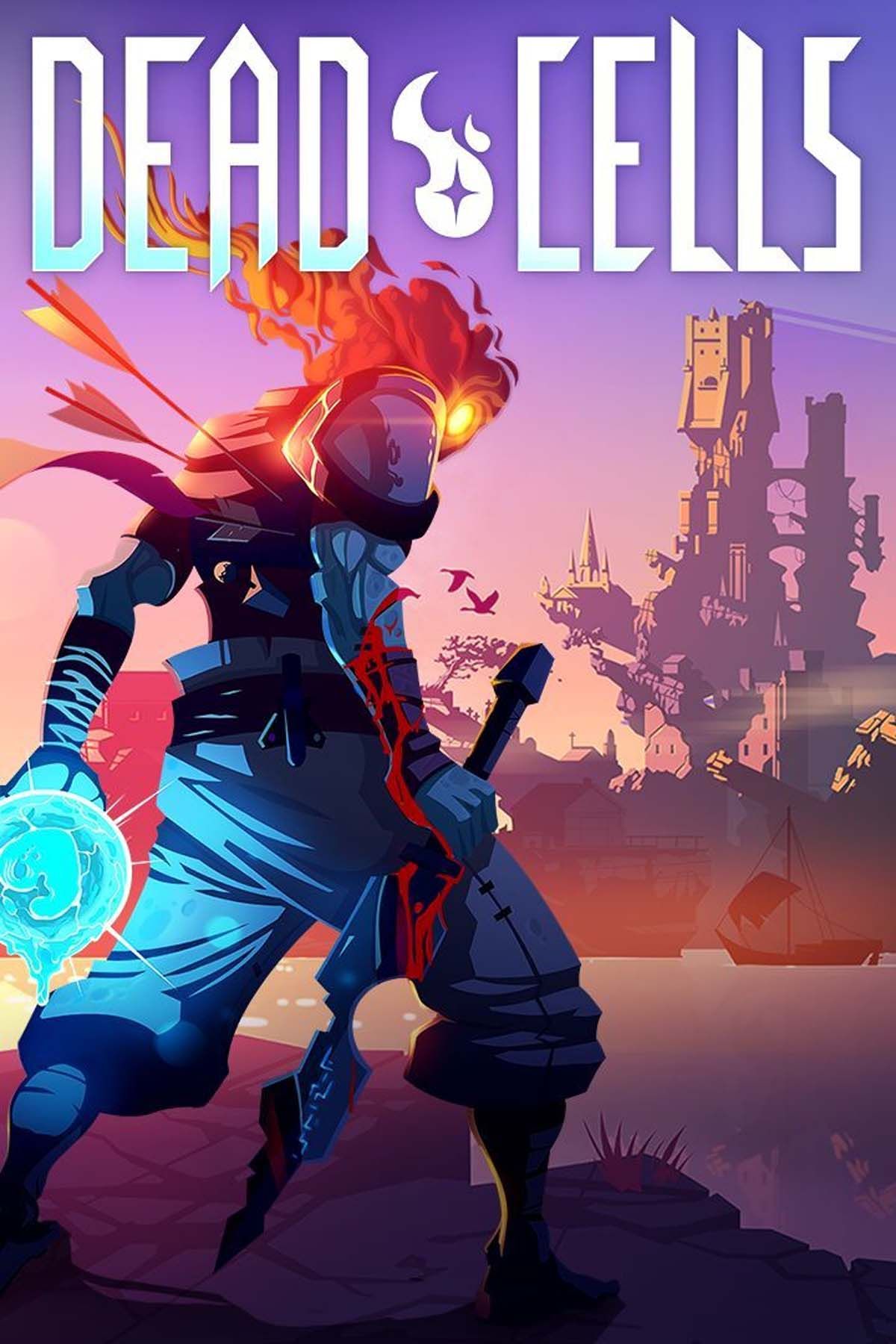
Dead Cells
Motion Twin's rogue-lite Metroidvania has you exploring an ever-changing castle and defeating the fort's keepers in thrilling Souls-like combat. Updated with regular free content, Dead Cells helped coin the genre, RogueVania, and promises hours of exploration within interconnected levels and colorful gameplay

